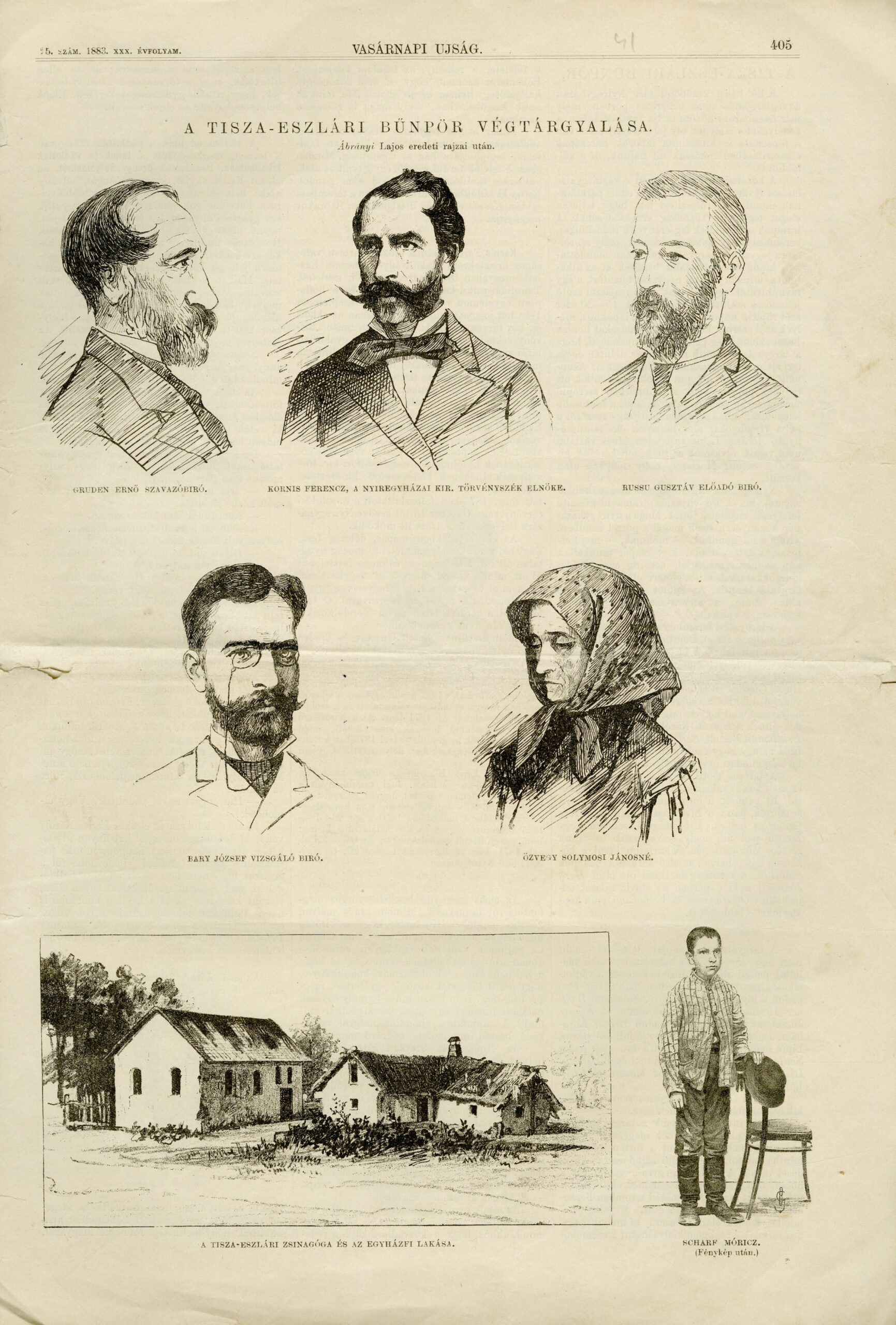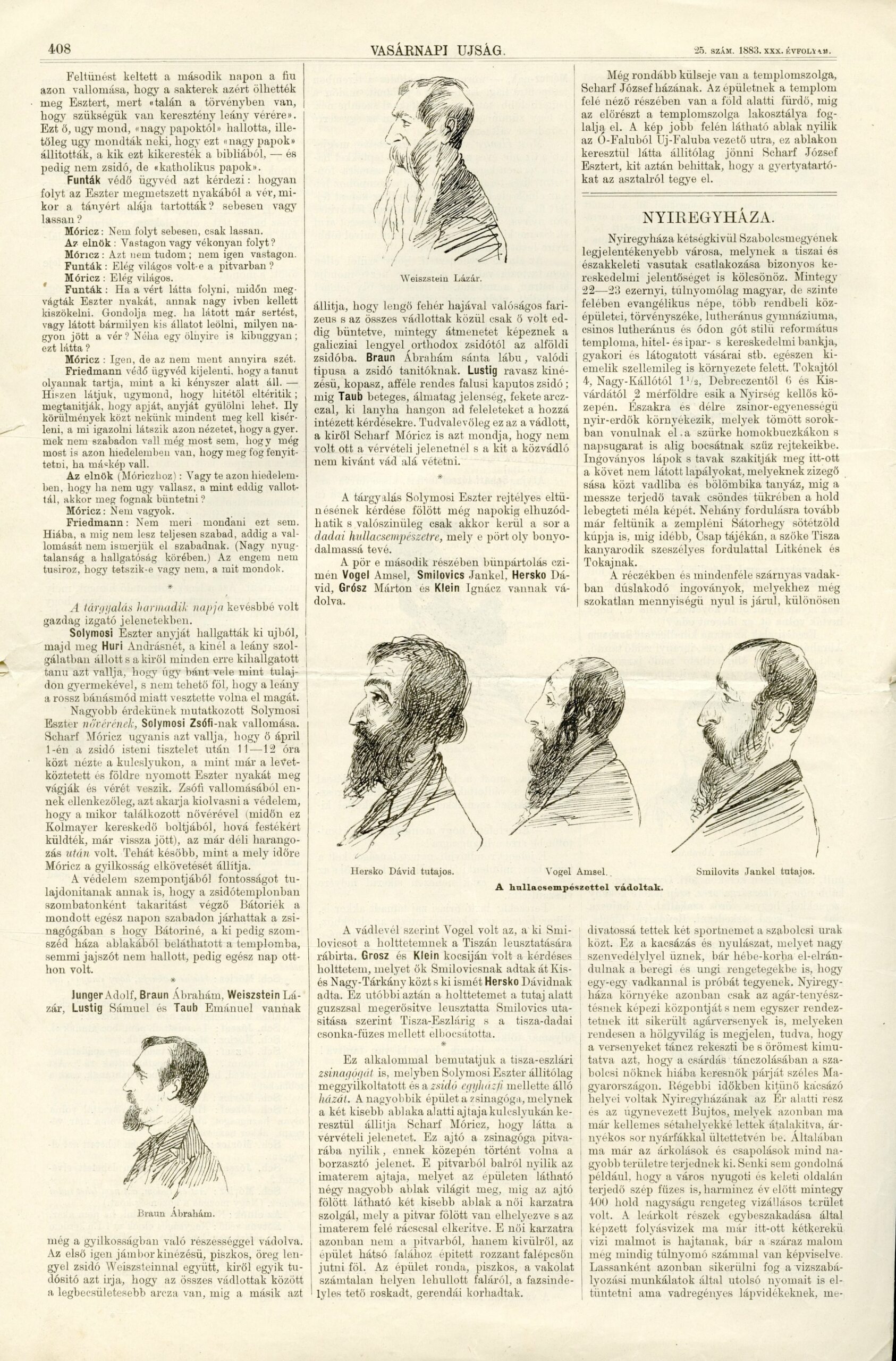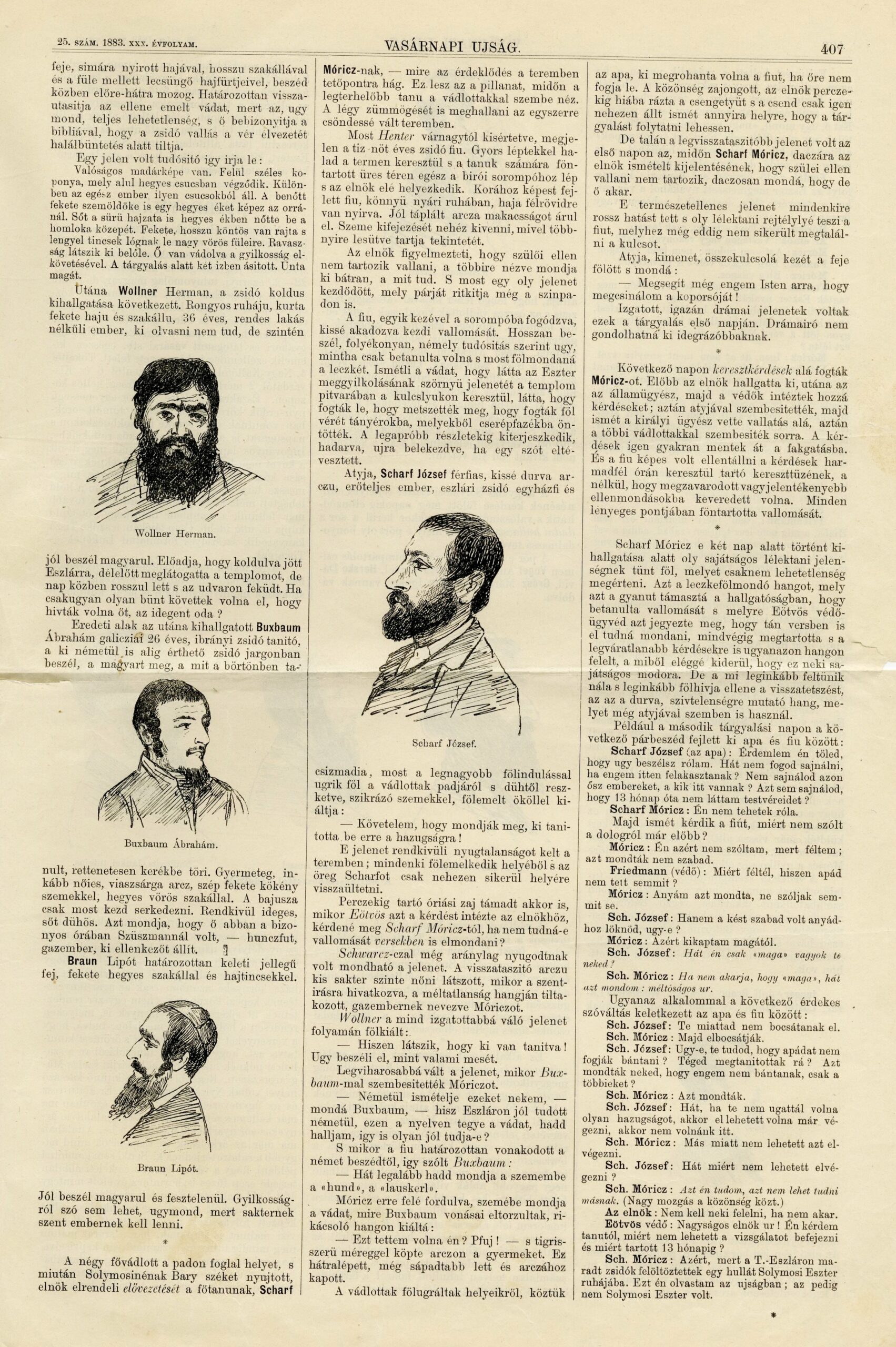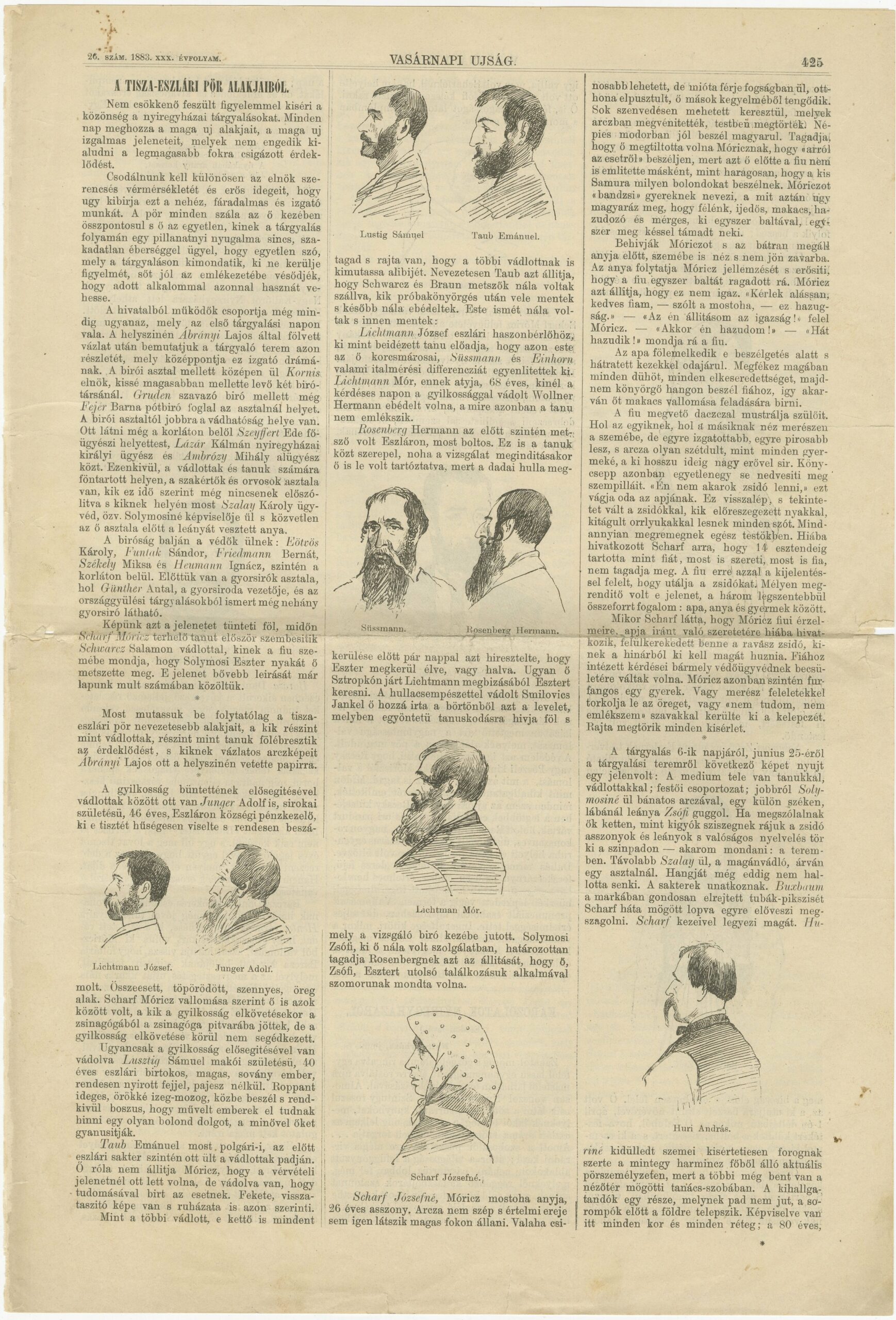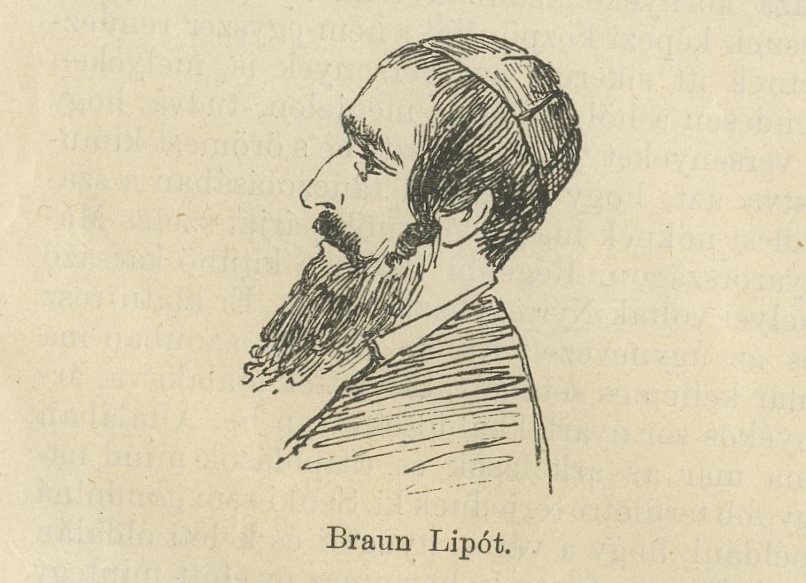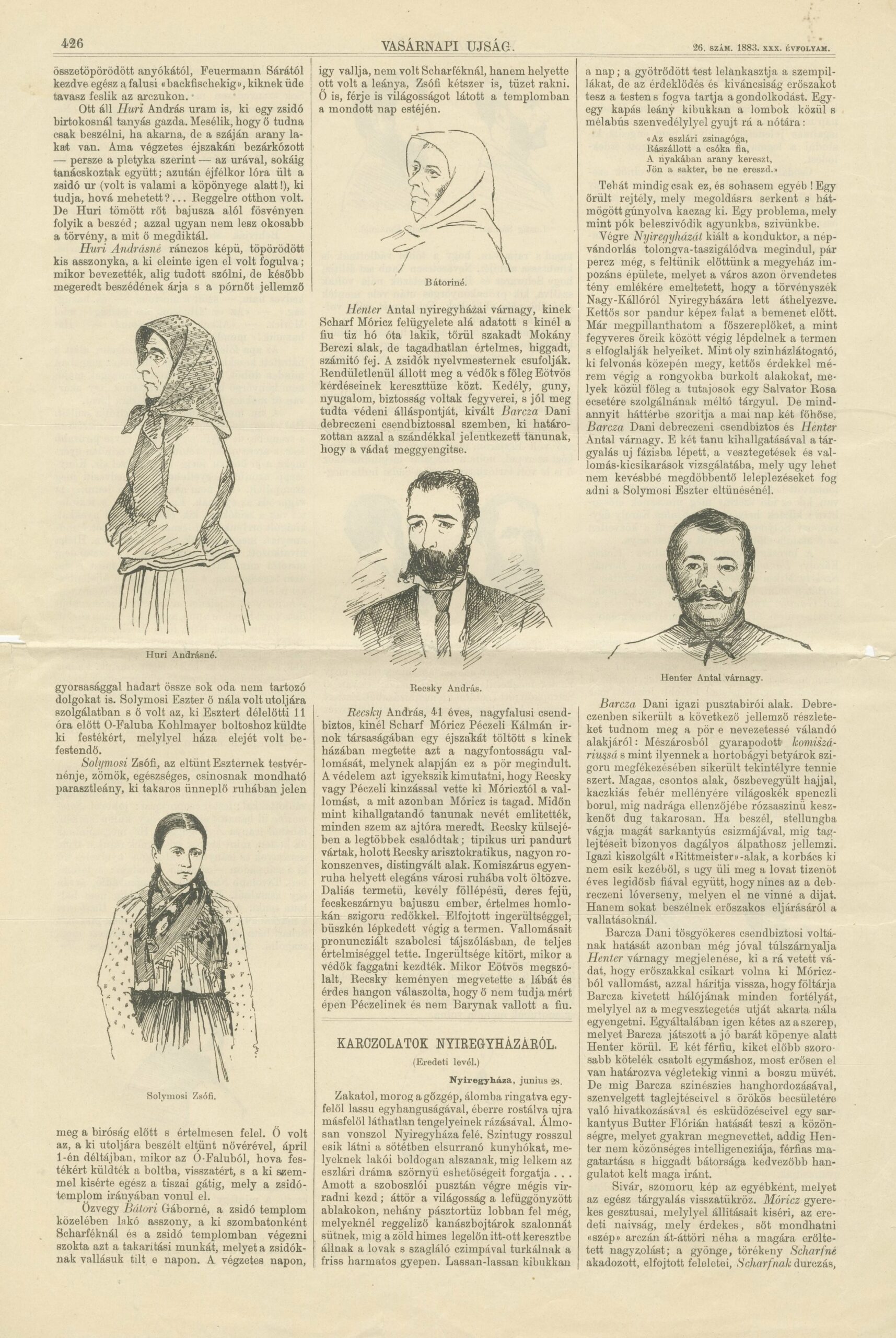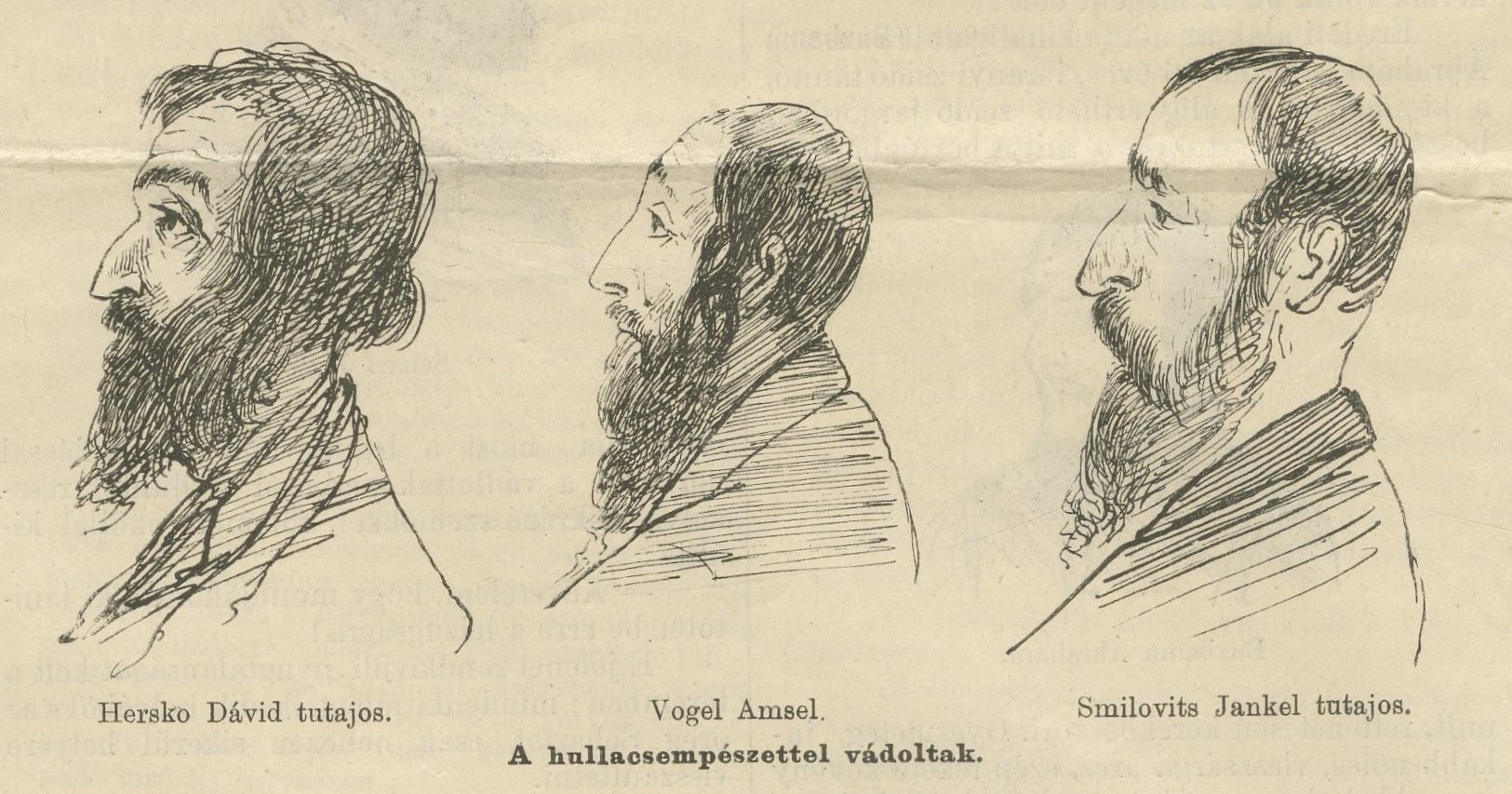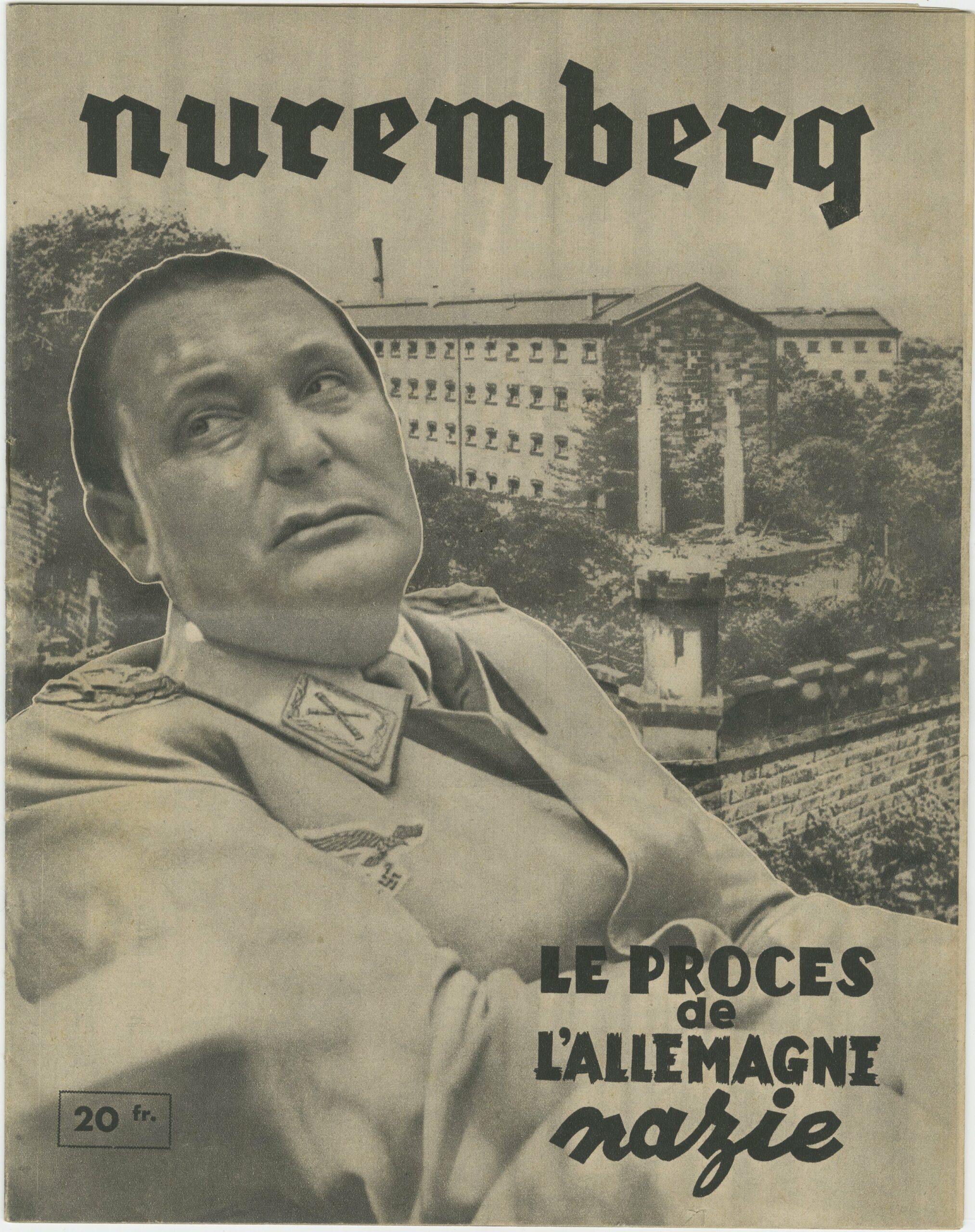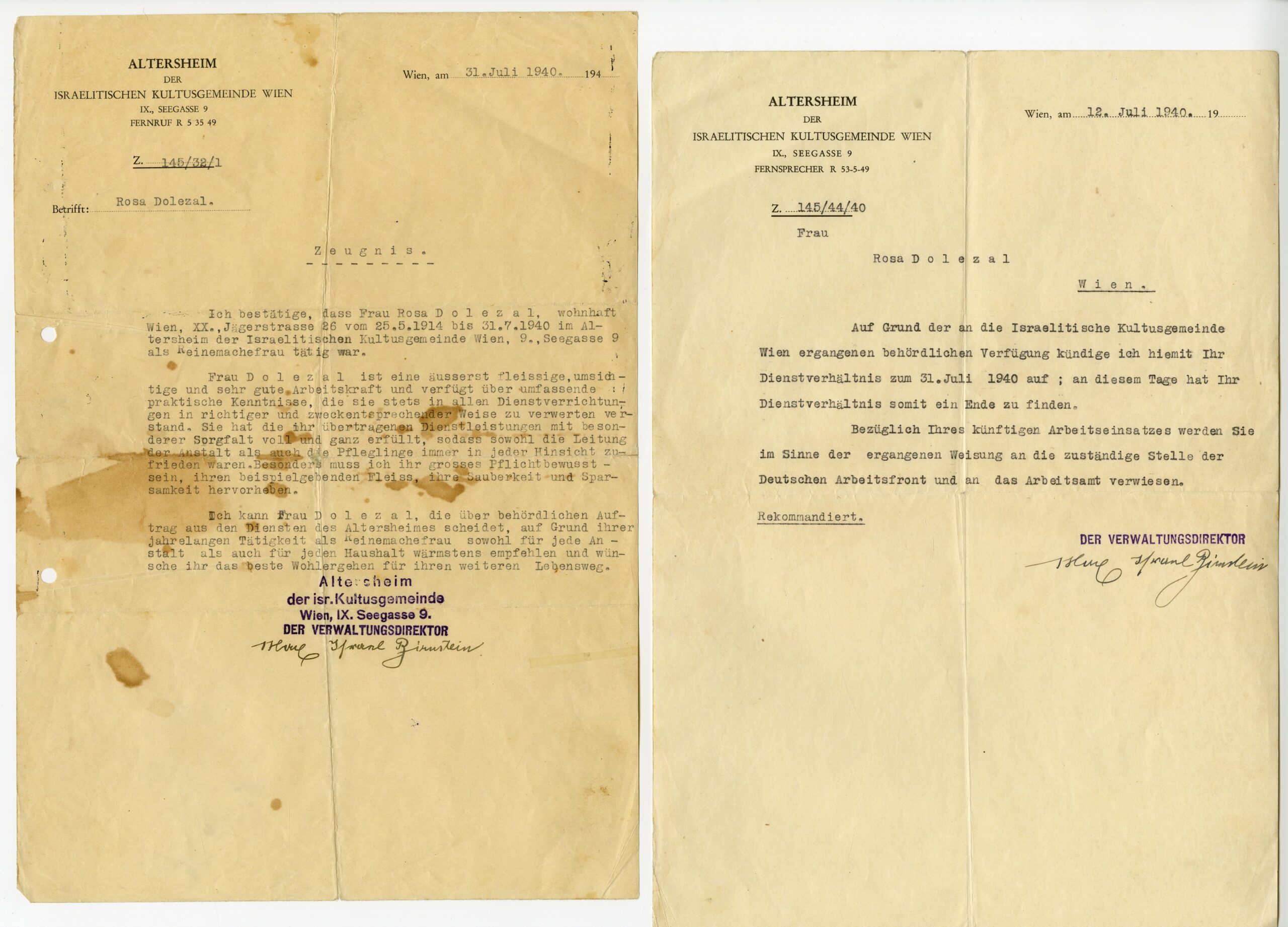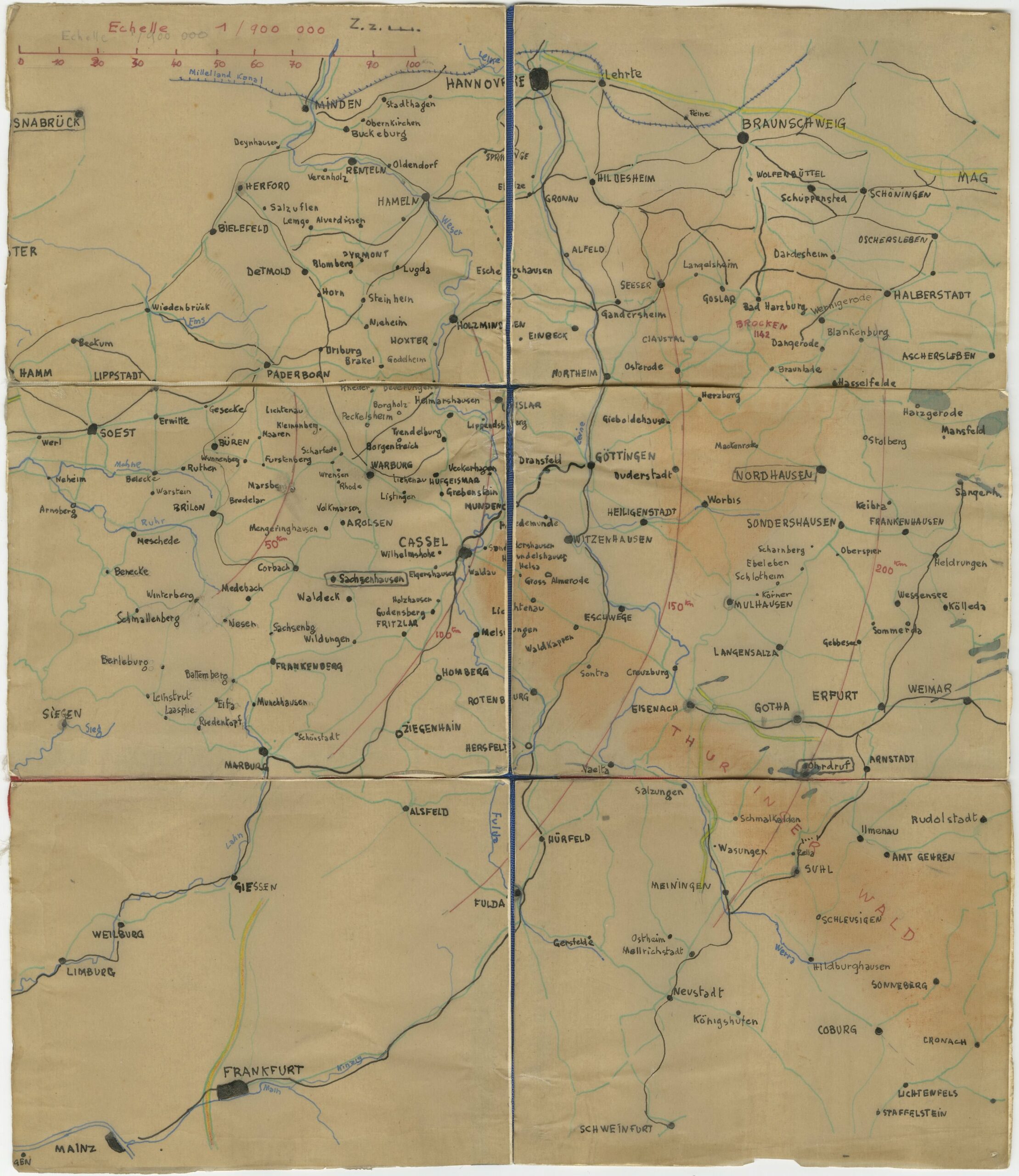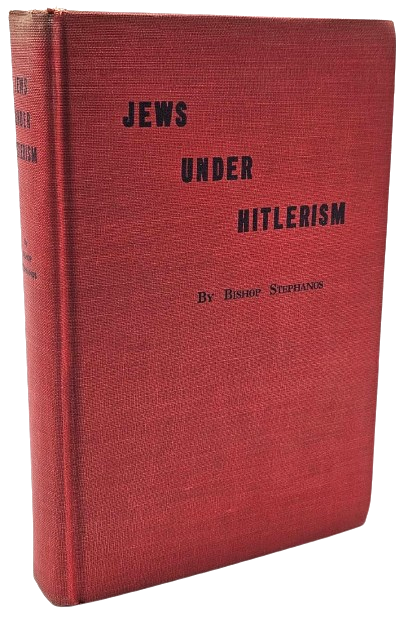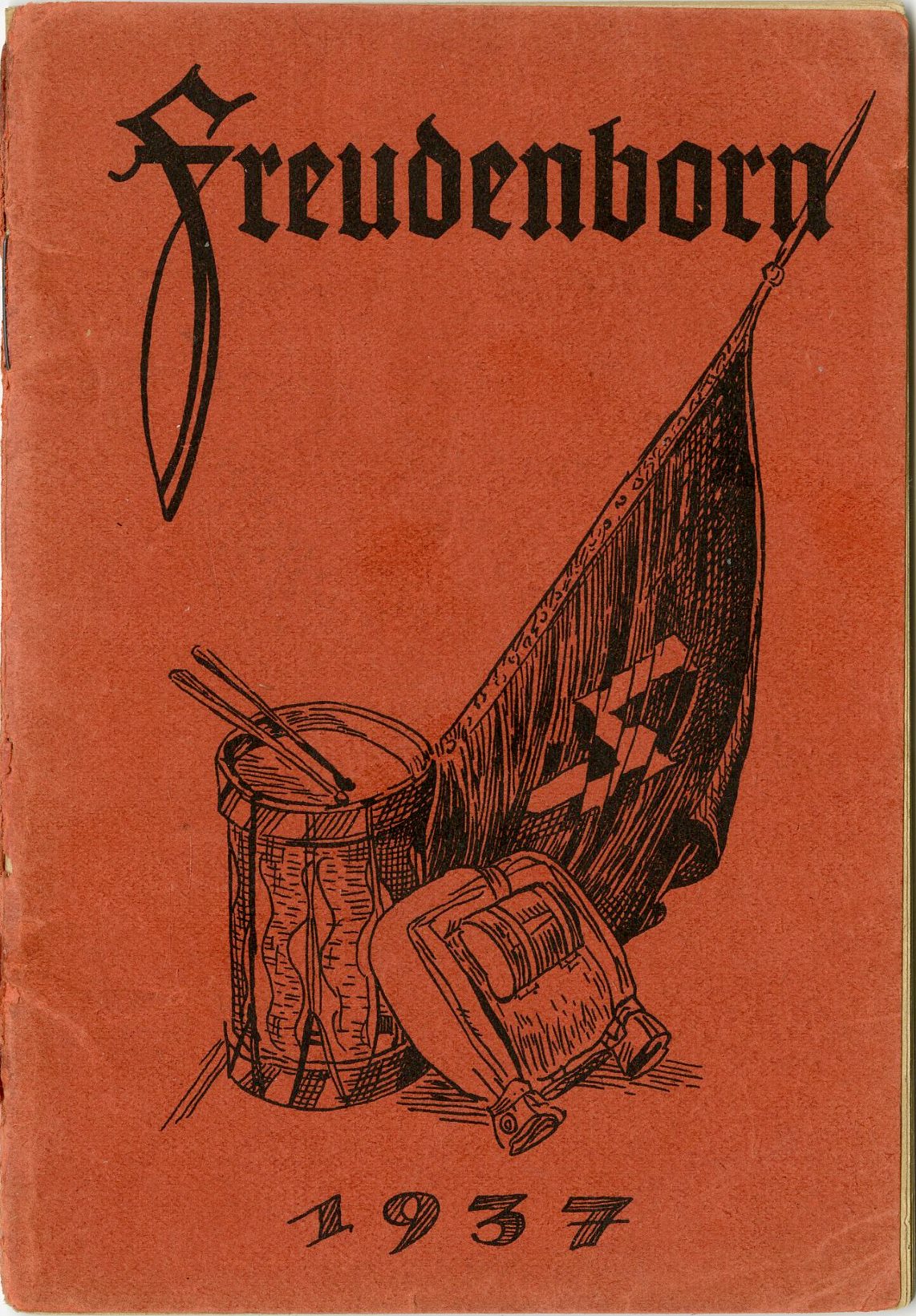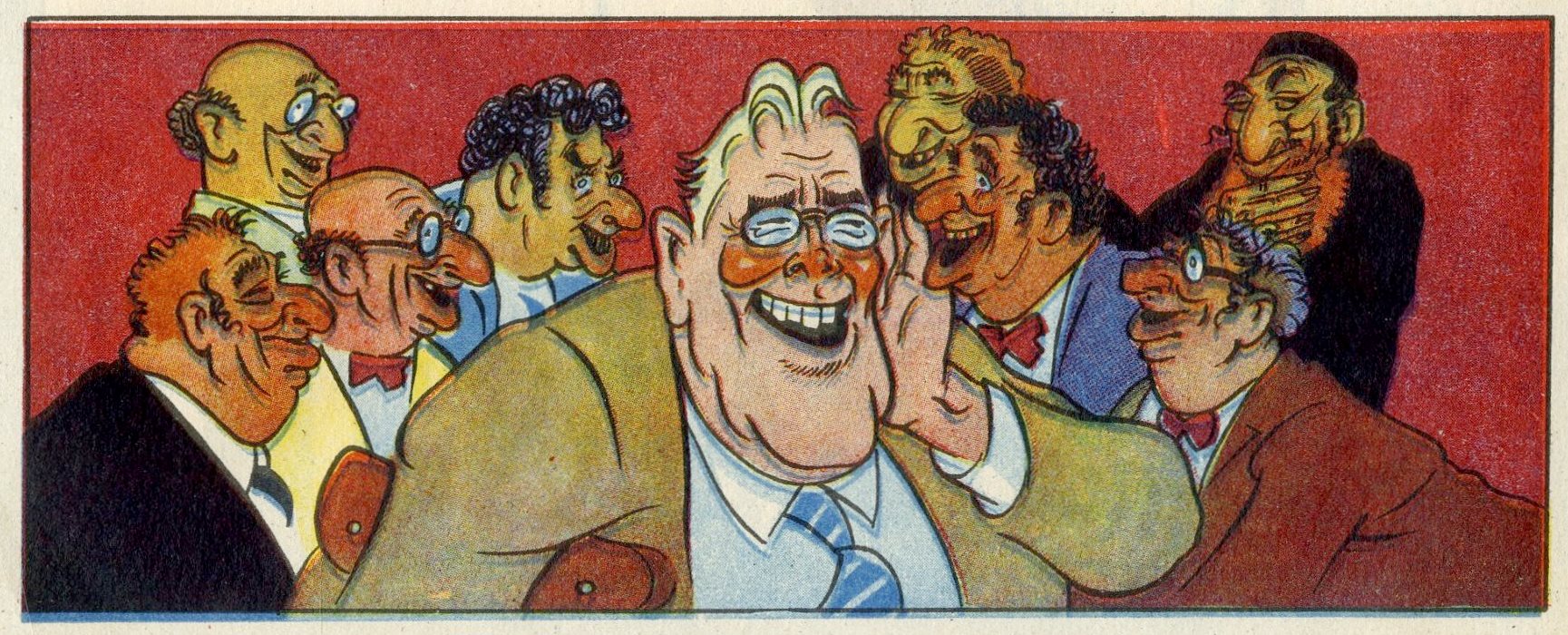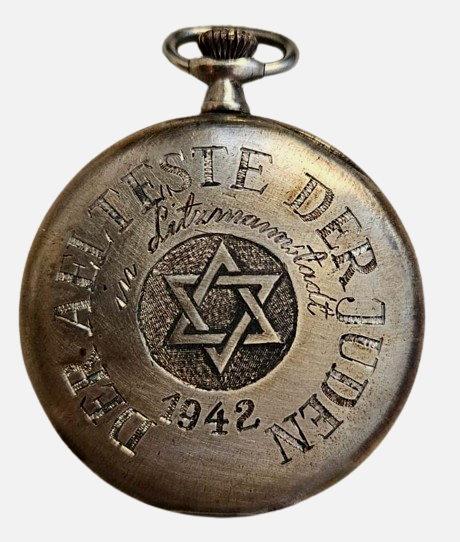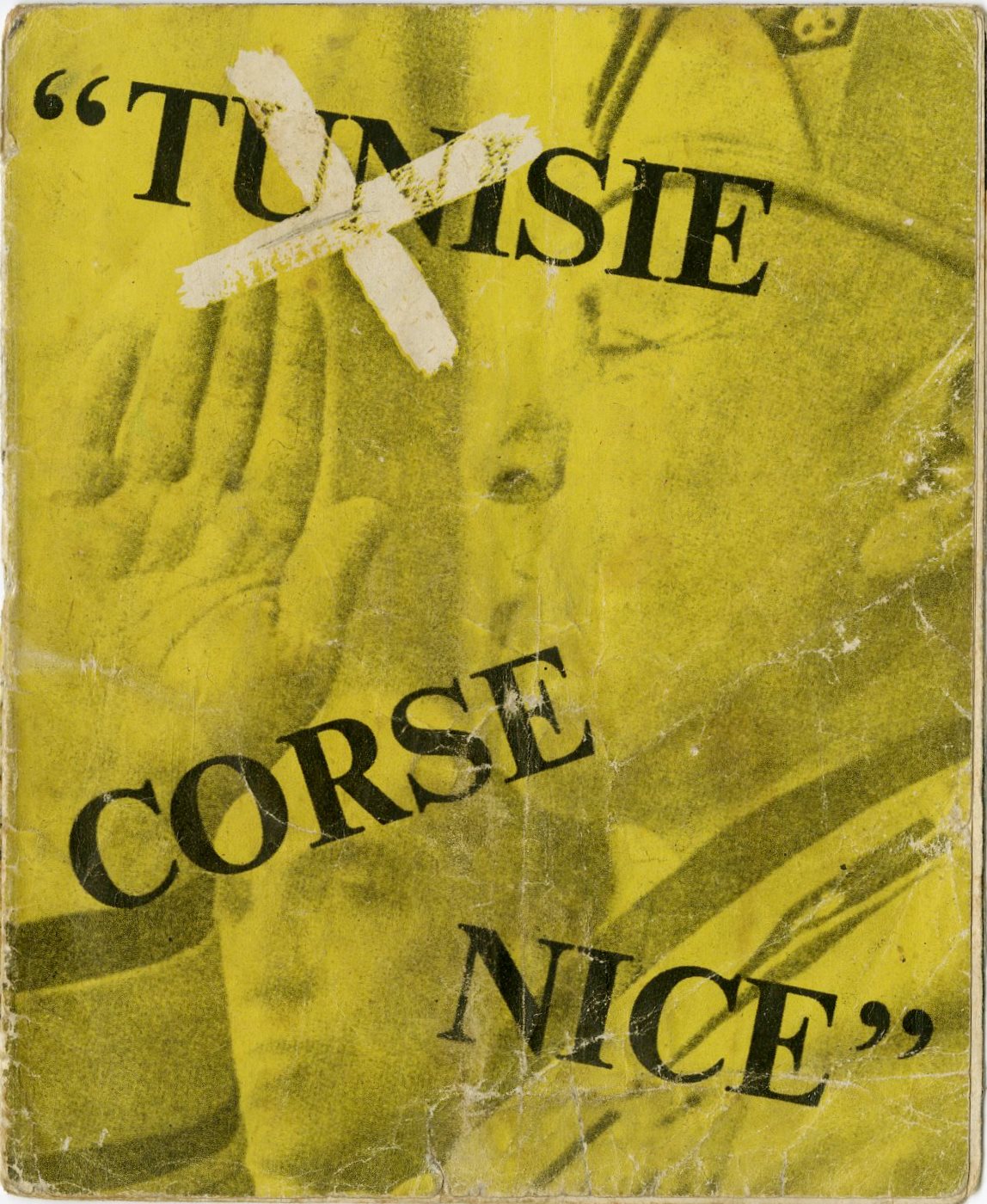Pages from the Hungarian newspaper Vasárnapi Újság - "Sunday Newspaper" - an extensive antisemitic natured review of the Tiszaeszlár trial at the height of the affair - the blood libel against the Jews who allegedly murdered a Christian girl. The newspaper pages are accompanied by illustrations of the main Jewish figures accused in connection with the murder with ridiculing descriptions, as well as an illustration of the synagogue. Hungary, March 1883. Hungarian.
A detailed real time report of the trial conducted against some of the leaders of the Jewish community in the "Tiszaeszlár" blood libel. The report includes the opening remarks of the court president, a description of the event, the indictment against the suspect and those "involved" in the murder accusing the Jews of murder for "religious" reasons. The writer describes how the six accused Jews enter the courtroom, the interrogation of witnesses, the testimony of the mother of the murdered girl, the examination of the findings of the body found, the structure of the synagogue in Tiszaeszlár and the accusation that the murdered girl was brought there, a detailed explanation of what each of the defendants took part in the murder, the reactions of the audience in the courtroom, and more.
The description of the Jewish defendants appears in an antisemitic manner, with the writer already drawing his conclusion in advance, when alongside an illustration of each of them appear a few sentences of hatred. For example, this is how the writer describes the defendant Shlomo Schwartz: "The first defendant is Solomon Schwartz, 38 years old but he looks much older, his pale face sunken, his chest hollow, his hands trembling nervously, he speaks Hungarian well, his long beard and the curls of hair hanging down by his ears, moving back and forth while he speaks. He completely rejects the accusation brought against him, because, according to him, it is completely impossible, and he proves in the Bible that the Jewish faith prohibits the enjoyment of blood under penalty of death. A journalist who was present writes: He has a broad skull in the upper part, ending in sharp levels at the bottom. His overgrown black eyebrows also create a sharp wedge on his nose. Moreover, sheep's hair also grew in a sharp wedge in the middle of his forehead. He wears a long black robe... He looks cunning. He is accused of murder. He yawned twice during the trial. He was bored...". In this spirit the other Jewish defendants are described.
Throughout all the pages of the issue appear illustrations of the Jews who were accused of collaborating in the murder, as well as an illustration of Moritz Scharf the butcher. (The illustrations are sketches created by Lajos Abrunyi based on the appearance of the characters themselves).
The well known blood libel known as the "Tiszaeszlár Affair" spread in the Hungarian town of Tiszaeszlár after a Christian girl named Eszter Solymosi who worked as a maid in a Jewish family's house disappeared from her home and did not return on Saturday, April 1, 1882, four days before Passover. When all efforts to locate her failed, a rumor spread in the town that the Jews had ritually murdered her and used her blood to bake matzah for Passover. That same day, the community Shamash Yosef Sharf and his wife, along with Schwartz the Butcher, were arrested, and an investigation began. Over the next two months, fifteen Jews were arrested as allegedly involved in the case and imprisoned in the district city of Nyrágyháza awaiting trial. False testimonies were collected, and a long, incitement-filled legal process began aimed at proving their guilt. The Jewish community turned to defender attorney and Hungarian parliamentary member Károly Eötvös, who took on the defense. During the trial, 33 court sessions were held in which all the defendants and dozens of additional witnesses related to the event were interrogated. In these debates, Eötvös managed to prove the testimonies were false, protested the torture methods used on interrogated suspects, and after over a year of the trial, on August 3, 1883, all defendants were acquitted "for lack of evidence".
Complete article on the subject. [8] pages. 41 cm. Fold marks. Good condition.

